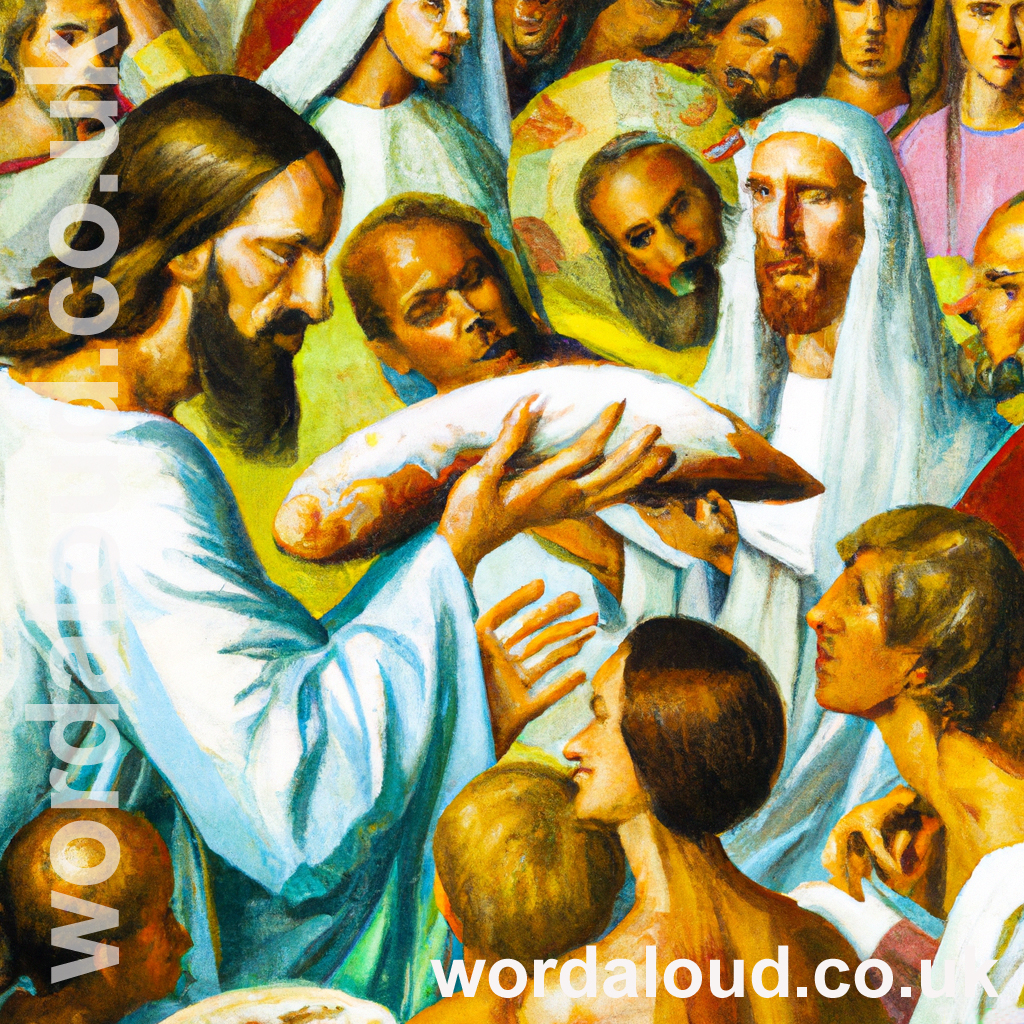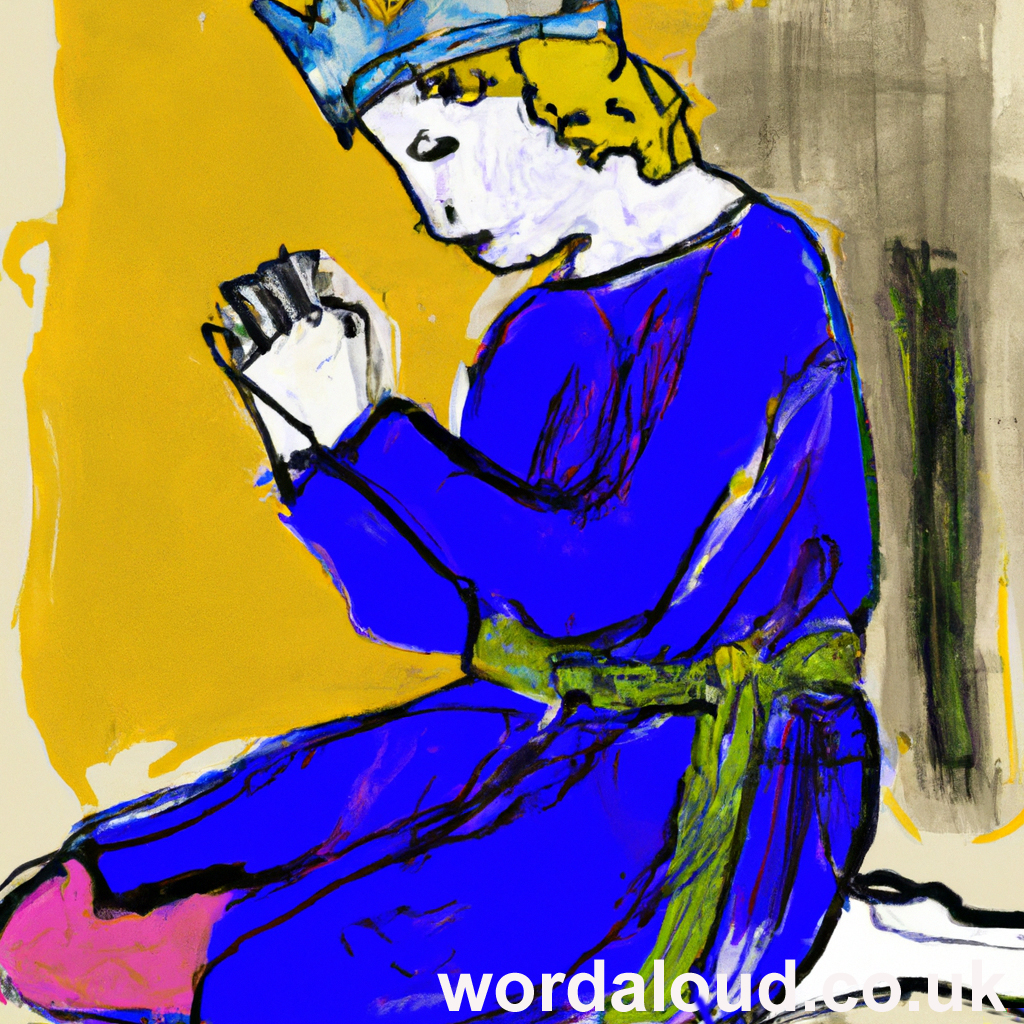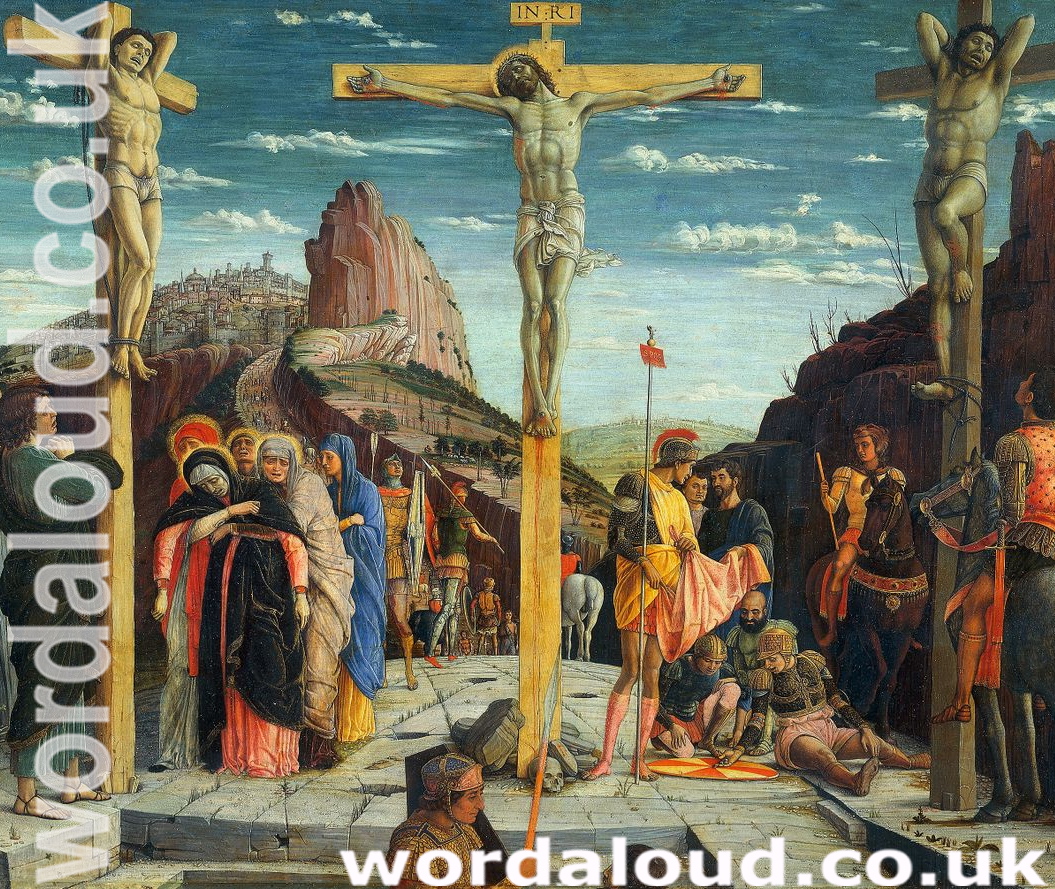Christian Art | Taste And See That The Lord Is Good | Boy At Prayer With Jesus Christ | The Eucharist
Office Of Readings | Week 15, Saturday, Ordinary Time | A Reading From The Treatise Of Saint Ambrose On The Mysteries | The Eucharist | The Word Of Christ
‘The sacrament that you receive is brought about through the word of Jesus Christ.’
Saint Ambrose, Bishop of Milan, meditates on the mystery of the Eucharist. He urges the newly baptized—and indeed all the faithful—not merely to look at the external appearances of bread and wine, but to trust in the transformative power of Jesus Christ’s own words, which effect what they declare. Saint Ambrose’s reflections, drawn from Scripture and theological reasoning, serve as a foundational testimony to the Church’s belief in the real presence of Jesus Christ in the Eucharist.
Eucharistic Theology In The Early Church
Saint Ambrose’s words are consistent with the Eucharistic teaching of other early Church Fathers. Saint Justin Martyr, writing around 155 AD, describes the Eucharist not as a mere symbol, but as the very body and blood of Christ, nourished by the divine Word. In his First Apology, he writes:
‘This food we call the Eucharist… we do not receive these things as common bread and common drink, but… the flesh and blood of that Jesus who was made flesh.’
Likewise, Saint Irenaeus affirms the union of the material and spiritual in the Eucharist, declaring:
‘The bread, after the invocation of God, is no longer ordinary bread, but the Eucharist, consisting of two realities: earthly and heavenly.’
Ambrose’s own language fits firmly into this Patristic consensus. He does not view the Eucharist as a symbolic reminder, but as a sacramental mystery in which the reality of Jesus Christ’s body and blood is truly present, effected by the divine Word.
Jewish Roots And Scriptural Typology
Saint Ambrose’s theology is deeply rooted in Scripture and Jewish liturgical imagery. He references Elijah and the fiery sacrifice as a foreshadowing of how divine power can transform the material world. He also evokes the creation account, where God’s Word brings all things into being: ‘He spoke and they were made.’ Thus, the same Word Incarnate can recreate the elements at the altar into his own Body and Blood.
Ambrose also alludes to the virgin birth, a miraculous transformation beyond the natural order. If Christ’s human body could be formed in Mary’s womb by the power of the Holy Spirit, why should we hesitate to believe that his words can change bread into his flesh?
This sacramental transformation, though hidden from the senses, is prefigured throughout salvation history. Just as manna nourished the Israelites and water flowed from the rock, so too does Jesus Christ nourish his Church through the living bread of heaven and the chalice of his blood. These Old Testament signs—fulfilled now in reality—form the typological foundation of the Eucharistic mystery.
Philosophical And Theological Development
While Saint Ambrose does not use Aristotelian terminology, his explanation anticipates the later doctrinal clarity of transubstantiation. The notion that something can retain its outward appearance while its inner reality is changed is rooted in the categories of ‘substance’ and ‘accidents’.
Ambrose says clearly:
‘Before the blessing, a different thing is named; after the consecration, a body is indicated.’
This reflects the core of later Scholastic teaching: the substance of the bread and wine becomes Christ’s body and blood, though the sensory attributes remain unchanged. This theology was later defined at the Fourth Lateran Council (1215) and reaffirmed at Trent (16th century), yet its roots are clearly evident in Ambrose’s 4th-century thought.
His trust in the efficacy of Christ’s words—‘This is my body’—is the very heart of Catholic Eucharistic theology. For Ambrose, the power to effect sacramental change does not rest in human eloquence or worthiness, but in Christ’s command and the Holy Spirit’s action.
Liturgy And Sacramental Practice | Taste And See That The Lord Is Good
Ambrose also gestures toward the liturgical life of the Church. The Eucharist is not a private act of devotion, but the culmination of Christian initiation, the sacramental climax following baptism and confirmation. The newly baptized are exhorted to ‘taste and see that the Lord is good’—not merely spiritually, but sacramentally, in the banquet of divine love.
This integration of doctrine and liturgy is seen in the broader Church of the time. For example, in the Roman Canon, ancient prayers still in use today speak of the offering of the ‘pure victim, the holy victim, the spotless victim’—echoing Ambrose’s Eucharistic realism. Meanwhile, in the Eastern Churches, the Divine Liturgy of Saint Basil includes a similar epiclesis (calling down of the Holy Spirit) to effect the transformation of the gifts.
Thus, Ambrose’s theology is not an abstraction—it is woven into the living, praying Church, as it celebrates the mystery of Christ’s presence and sacrifice made present anew.

A Reading From The Treatise Of Saint Ambrose On The Mysteries | The Eucharist | The Word Of Christ
We see that grace can accomplish more than nature, yet so far we have been considering instances of what grace can do through a prophet’s blessing. If the blessing of a human being had power even to change nature, what do we say of God’s action in the consecration itself, in which the very words of the Lord and Saviour are effective? If the words of Elijah had power even to bring down fire from heaven, will not the words of Christ have power to change the natures of the elements? You have read that in the creation of the whole world he spoke and they came to be; he commanded and they were created. If Christ could by speaking create out of nothing what did not yet exist, can we say that his words are unable to change existing things into something they previously were not? It is no lesser feat to create new natures for things than to change their existing natures.
What need is there for argumentation? Let us take what happened in the case of Christ himself and construct the truth of this mystery from the mystery of the incarnation. Did the birth of the Lord Jesus from Mary come about in the course of nature? If we look at nature we regularly find that conception results from the union of man and woman. It is clear then that the conception by the Virgin was above and beyond the course of nature. And this body that we make present is the body born of the Virgin. Why do you expect to find in this case that nature takes its ordinary course in regard to the body of Christ when the Lord himself was born of the Virgin in a manner above and beyond the order of nature? This is indeed the true flesh of Christ, which was crucified and buried. This is then in truth the sacrament of his flesh.
The Lord Jesus himself declares: This is my body. Before the blessing contained in these words a different thing is named; after the consecration a body is indicated. He himself speaks of his blood. Before the consecration something else is spoken of; after the consecration blood is designated. And you say: ‘Amen,’ that is: ‘It is true.’ What the mouth utters, let the mind within acknowledge; what the word says, let the heart ratify.
So the Church, in response to grace so great, exhorts her children, exhorts her neighbours, to hasten to these mysteries: Neighbours, she says, come and eat; brethren, drink and be filled. In another passage the Holy Spirit has made clear to you what you are to eat, what you are to drink. Taste, the prophet says, and see that the Lord is good; blessed is the man who puts his trust in him. Christ is in that sacrament, for it is the body of Christ. It is therefore not bodily food but spiritual. Thus the Apostle too says, speaking of its symbol: Our fathers ate spiritual food and drank spiritual drink. For the body of God is spiritual; the body of Christ is that of a divine spirit, for Christ is a spirit. We read: The spirit before our face is Christ the Lord. And in the letter of Saint Peter we have this: Christ died for you. Finally, it is this food that gives strength to our hearts, this drink which gives joy to the heart of man, as the prophet has written.
Prayer With Jesus Christ
Lord Jesus Christ,
You spoke, and the heavens came to be.
You commanded, and all creation was formed.
You said, ‘This is my body,’ and bread became your flesh,
You said, ‘This is my blood,’ and wine was made your very life poured out.
Grant us the grace to approach your altar in humility and awe,
To receive with living faith the gift of your presence,
And to trust that in your word is power—
Power to create, to transform, and to save.
May we never take for granted this sacred mystery,
But always hunger for it with hearts renewed.
Let your sacrament be our strength in weakness,
Our comfort in sorrow,
Our joy in the journey toward eternal life.
O Bread of Angels,
O Food of Immortality,
Remain in us always,
That we may remain in you.
Amen.
Glossary Of Christian Terms
Eucharist – The sacrament in which bread and wine become the true Body and Blood of Christ, instituted at the Last Supper.
Consecration – The moment during the Mass when the priest pronounces the words of Christ (‘This is my body… this is my blood’), effecting the transformation of the elements.
Real Presence – The belief that Jesus Christ is truly present—body, blood, soul, and divinity—in the Eucharist.
Transubstantiation – The theological term describing how the substance of bread and wine is changed into the substance of Christ’s body and blood, while the appearances (or ‘accidents’) remain. Typology – A method of biblical interpretation where events in the Old Testament are seen as prefigurations (or ‘types’) of New Testament realities.
Patristic – Referring to the Church Fathers, early Christian theologians and writers (such as St Ambrose, St Augustine, etc.) whose works shaped Christian doctrine.
Manna – The miraculous food provided to the Israelites during their journey through the desert, seen as a foreshadowing of the Eucharist.
Epiclesis – The part of the Eucharistic Prayer in which the priest invokes the Holy Spirit to sanctify the gifts of bread and wine.
Sacrament – An outward sign instituted by Christ to give grace; the Eucharist is one of the seven sacraments of the Church.
Mystery – In Christian theology, a divinely revealed truth that surpasses human understanding, such as the Eucharist or the Incarnation.








